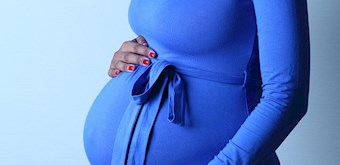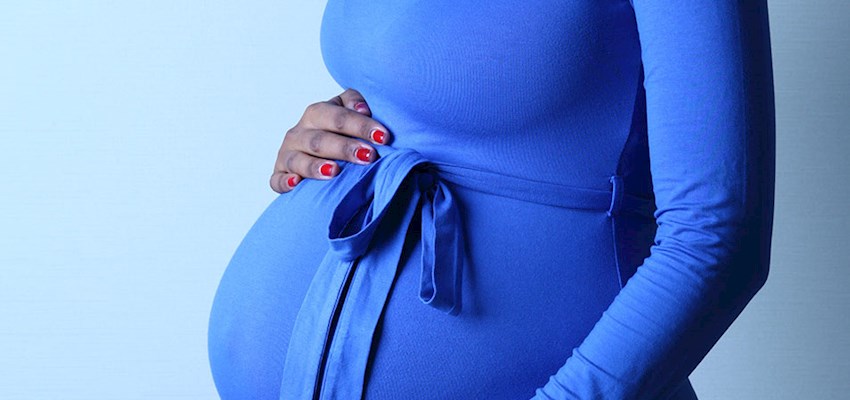Early pregnancy service
pregnancy care for newly expectant mothers
If you have questions early in your pregnancy and need advice or reassurance, our dedicated service is on hand
HCA UK Booking Line:
020 7390 6199About early pregnancy
Our team of experienced sonographers and consultants provide personalised care for women experiencing pain, bleeding, morning sickness or loss of symptoms. We offer a number of ultrasound examinations and routine antenatal screenings, including: anatomy, growth and Doppler examinations; screening for Down’s, Edwards and Patau’s Syndrome; chorionic villus sampling and amniocentesis.
Same day appointments are often available. If necessary, we can arrange further tests or consultations with a gynaecologist.
We also offer a wide range of antenatal classes and childbirth advice for you and your partner, as well as exercise classes to help you maintain general fitness and prepare your body for childbirth.
Our early pregnancy consultants
Should you have concerns in the early stages, we have consultants who specialise in managing and diagnosing conditions such as severe morning sickness (hyperemesis gravidarum) or high blood pressure (hypertension).




Natural methods
Staying upright and active during labour and birth
Instinctively a woman in labour wants to adopt upright and mobile positions, as she is more comfortable like this.
The benefits are:
- walking around keeps you more comfortable and avoids backache
- remaining upright helps your labour progress more efficiently and makes it shorter; the natural effects of gravity are maximised
- remaining upright allows for maximum space to be achieved in the pelvis, so your baby’s passage is easier
- remaining upright allows for maximum oxygen to reach your baby during labour and birth.

Breathing techniques for labour and birth
Breathing techniques can act as a diversion from the intensity of your contractions.
The techniques are ideally used in conjunction with relaxation techniques as the first line in pain relief.
You can learn these specialised breathing and relaxation techniques at our antenatal classes.
Massage for labour
Practice makes perfect and you can learn labour massage techniques at your antenatal classes.


Hypnobirthing
Transcutaneous Electrical Nerve Stimulation (TENS)
This creates a tingling feeling which you can control the strength of, and boost during a contraction. It has no harmful effects on either you or your baby. TENS works by helping to release your body’s own painkillers (endorphins) and the effect increases the longer you use it.
TENS units should be hired or purchased before going into labour. More information is available from the booking clinic midwives and at our antenatal classes.
Using water for labour and birth
The buoyancy of the water helps you maintain upright yet relaxed positions and you generally labour faster in the pool as a result. This helps enormously to make you more comfortable in upright positions. The relaxing effect of the water stimulates your body to produce endorphins, or your body’s own natural painkiller.
Pharmacological pain relief
Entonox
Entonox is a gas made up of 50 per cent nitrous oxide and 50 per cent oxygen which is known as gas and air. You breathe this through a mask or mouthpiece and it can be used at any time during labour. It is simple and quick to act, and wears off once you stop using Entonox, usually within minutes.
It does not harm your baby and it gives you extra oxygen, which can be good for you and your baby. You control the amount of Entonox you use, but to get the best effect, timing is important.
You should start breathing Entonox as soon as you feel a contraction coming on, so you get the full effect when the contraction is at its peak.
In line with standard midwifery practice at The Portland Hospital, Entonox can be offered as a pain relief option while using the pool. Your midwife will be able to discuss this with you further.
You can also combine Entonox with a TENS unit for even more effective pain relief.
Epidural analgesia
Having an epidural may have an effect on your progress in labour. At The Portland Hospital we offer mobile epidurals. This can provide excellent pain relief while allowing you to keep some feeling in your legs. This means you may be able to move around in labour. Before you can get out of bed and walk with your epidural in place, the midwife will need to ensure that you have enough feeling and strength in your legs.
Once the epidural is inserted you will be asked not to eat, but you may continue to drink clear fluids.
Pain relieving injections
These pain medications are known to cause side effects. Therefore the doses used are small. They may make you feel sick, but you are usually given an anti-sickness medication to prevent this. They may make your baby a bit sleepy and occasionally slow to feed.
Our early pregnancy clinic locations
We offer an early pregnancy service at two of our main hospitals with supporting clinics also available in the local area.
Request an appointment
Our early pregnancy service is available Monday to Friday from 9.00am - 5.00pm, and on Saturday 9.00am - 1.00pm.